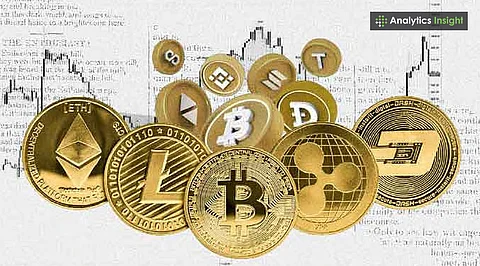Crypto News Today: SharpLink Buyback, Ripple’s RLUSD Japan Launch, Philippine Bitcoin Reserve Bill
Overview:
SharpLink approves a $1.5B buyback to strengthen Ether's treasury strategy.
Ripple will partner with SBI to launch the RLUSD stablecoin in Japan by Q1 2026.
Philippine bill proposes 10,000 Bitcoin reserve for long-term national stability.
The cryptocurrency market recorded three major developments today. SharpLink Gaming authorised a $1.5 billion stock buyback on its Ether holdings. Ripple has revealed partnership plans with SBI Holdings to launch its RLUSD stablecoin in Japan by early 2026. In the Philippines, lawmakers introduced a bill to direct the central bank to purchase 10,000 BTC to create a Bitcoin reserve.
SharpLink Gaming Authorizes $1.5 Billion Stock Buyback
Today, SharpLink Gaming approved a $1.5 billion stock repurchase program as part of its capital markets strategy. The company holds $3.14 billion worth of Ether, making it the second-largest corporate holder of the cryptocurrency. The firm confirmed that no shares have been repurchased yet.
Co-CEO Joseph Chalom said the program will allow the company to buy back shares when they trade below the net asset value of its Ether holdings. This would push up the firm's Ether per share, exposing shareholders to greater amounts of its ETH reserves. The strategy is consistent with SharpLink's strategy of gaining and staking Ether to improve its long-term value.
SharpLink switched to an Ethereum-based corporate treasury plan in early 2021 and named Ethereum co-founder Joseph Lubin as chairman. The corporation has prioritized Ether as the main treasury reserve asset. It currently holds 740,800 Ether, standing on unrealized gains of nearly $600 million following recent price increases.
Ripple and SBI Holdings to Launch RLUSD in Japan
Ripple confirmed today that it will partner with SBI Holdings to distribute its RLUSD stablecoin in Japan. Pending regulatory approvals, the launch is scheduled for the first quarter of 2026. The launch will take place through SBI VC Trade, the crypto arm of SBI Holdings.
In December 2024, Ripple launched its RLUSD stablecoin, which is backed by US dollar deposits, short-term government bonds, and other liquid assets. It has expanded to a market capitalization of $666 million and a daily trading volume of $71 million. The Japanese expansion will be a major move towards the international adoption of the stablecoin.
SBI VC Trade CEO Tomohiko Kondo said that introducing RLUSD will strengthen the reliability and convenience of stablecoins in Japan. In June, Ripple announced that the Dubai Financial Services Authority had approved the use of RLUSD as a payment rail in the Dubai International Financial Centre.
This license increased its services by offering cross-border payments and made RLUSD a part of the large stablecoin boom. The supply of stablecoins is rising, and now stands at $266 billion, which is up by $10 billion since early August.
Philippine Bill Proposes 10,000 Bitcoin Reserve
In Southeast Asia, the Philippines may soon join the ranks of countries adopting Bitcoin as a strategic asset. Representative Migz Villafuerte introduced the “Strategic Bitcoin Reserve Act” today, which would mandate the Bangko Sentral ng Pilipinas to purchase 2,000 Bitcoin annually over five years. At current market prices, the proposed reserve of 10,000 BTC would be valued at $1.1 billion.
The assets are to be placed in a trust covering at least 20 years, with no release permitted longer than it is used to pay down government debt. The law also demands proof-of-reserves reporting, wherein the central bank governor will be required to update holdings, transactions, and control of the private keys quarterly.
The initiative draws comparisons with El Salvador’s Bitcoin program, which has accumulated 6,276 BTC, and Bhutan, which holds more than 10,000 BTC. If passed, the law would place the Philippines among the top sovereign Bitcoin holders globally. Villafuerte described Bitcoin as “digital gold,” noting its 40% annual growth rate over the past five years and its role in strengthening financial stability.
.png)

